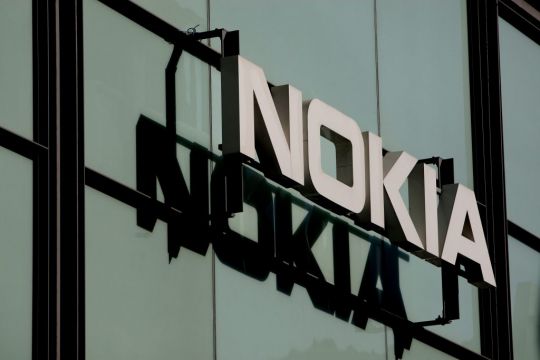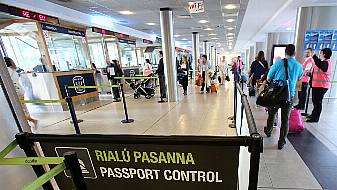Nokia has announced it will cut up to 14,000 jobs to reduce costs, warning it did not expect a market recovery soon after posting a 20 per cent drop in third-quarter sales on weaker demand for 5G equipment.
Shares in the Finnish company, which produces equipment for telecom networks, were down 2 per cent on Thursday morning.
A slowdown in the United States, one of the more profitable markets for Nokia and Ericsson, had forced them to look for growth in other regions such as India. But now India is also expected to normalise after a stellar 2022.
"The market situation is really challenging, and it is witnessed by the fact that in our most important market, which is the North American market, our net sales are down 40 per cent in Q3," chief executive Pekka Lundmark told Reuters.
Nokia is targeting savings of between €800 million and €1.2 billion by 2026.
It expects to reduce its employee base to between 72,000 and 77,000 employees, from 86,000, or about 16 per cent job cuts at the high end.
Lundmark declined to give more details, saying the company must consult first with employee representatives. However, he said he wanted to protect research and development.
Nokia expects at least €400 million of savings in 2024, and a further €300 million in 2025.
Uncertainty
Ericsson, which has also laid off thousands of employees this year, said on Tuesday the uncertainty affecting its business would persist into 2024.
Nokia, which echoed Ericsson's comments on uncertainty, however said there will be a more normal seasonal improvement in its network businesses in the fourth quarter.
The company did not cut its full-year outlook.
"We continue to believe in the mid-to-long-term market, but we are not going to sit and wait and pray that the market will recover anytime soon," Lundmark said. "We simply don't know when it will recover."
5G was touted as an industry that was meant to start the age of automation and driverless cars but businesses have been slow to adopt the new technology.
With slow growth, telecom operators have been struggling with their investment budgets and embarked on their own cost cuts. Earlier this year, Britain's BT Group had announced plans to cut 55,000 jobs while Vodafone has plans to cut 11,000 positions.
"This should be an industry that's flying high, buoyed by unrelenting demand for its services ... instead, countless questions continue to be posed around operators' relevance and long-term future," said CCS Insight analyst Kester Mann.
For market recovery, Lundmark said the industry needs to invest in faster mid-band equipment to help cope with the growth in data traffic. "Only 25 per cent of 5G base stations in the world outside of China currently has mid-band," he said.
Mid-band equipment offers higher 5G speeds, but many telecom operators started their 5G deployment with low-band gear that is cheaper but offers lower speeds.
"There are signs here and there that demand would start to pick up again, but it's too early to call it a broad-based trend," Lundmark said.
Quarterly comparable net sales fell to €4.98 billion from €6.24 billion last year, missing an estimate of €5.67 billion according to a LSEG poll. -Reuters







